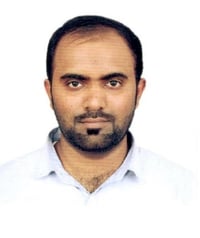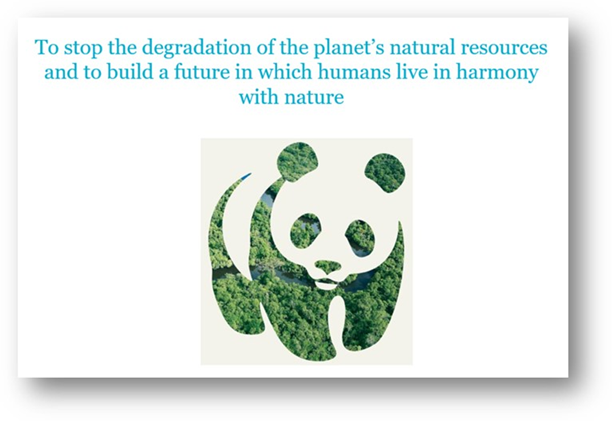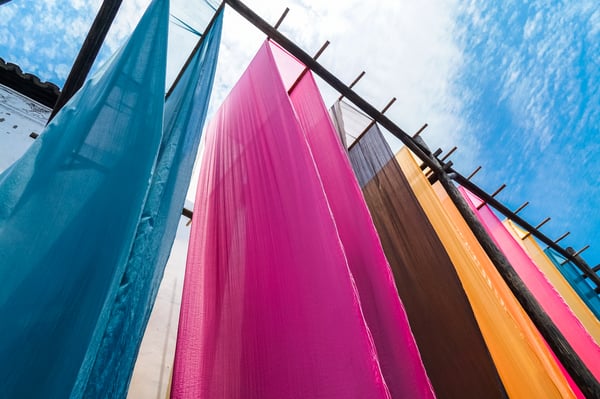WWF-Pakistan has announced the successful completion of a pilot programme it hopes will put the country’s economically important textile industry firmly on the road to improved chemical management and sustainability by adopting internationally recognized Zero Discharge of Hazardous Chemicals (ZDHC) standards and guidelines.
As the local arm of the world’s largest conservation group, WWF-Pakistan is implementing the program as part of a European Union (EU) funded initiative. It is designed to enhance the awareness and ability of firms in the textile and leather sectors to adopt Smart Environmental Management Practices (SEMPs).
Known officially as “International Labour & Environmental Standards Application in Pakistan's SMEs (ILES),” the goal of the project is to reduce the overall energy and water footprint of textile and leather manufacturing. In addition, it addresses other relevant environmental issues such as air and noise pollution, and solid waste management.

“Industrial activity is one of the main users of natural resources. This goal of this project is to make everyone involved aware of the importance and potential benefits of using these resources in a sustainable way,” said Adeel Younas, Project Leader, WWF Pakistan.
“The leather and textiles sector is not just a major user of water, energy and chemicals, it also contributes about 13.5% of the country’s GDP and employs more than 15 million people. Working with the industry in these areas and steering it towards more efficient production techniques and cleaner processes is essential in order to create a sustainable future,” said Younas.
The cornerstone of the project is the development and delivery of an evaluation and training package to support textile enterprises in ZDHC implementation. Following an exhaustive tender process to identify a qualified consultant, WWF-Pakistan selected the global inspection, testing and certification organization, TÜV Rheinland to provide five of Pakistan’s top textile SMEs with training and capacity building based on ZDHC standards and guidelines between February and April 2021. The specific training needs were identified through a benchmarking study.
“The selection criteria included formal qualifications in the textile, environmental and engineering sciences, more than 10 years of sector experience and at least 5 referenceable capacity development projects implemented in the last 3 years. Along with extensive knowledge of chemical management principles and practices within the textile industry, the consultant also had to be from an accepted ZDHC approved service provider. That ruled out most other potential providers, but it matched TÜV Rheinland’s expertise perfectly,” said Younas.
TÜV Rheinland kicked-off the project by preparing a GAP analysis report on all 5 participating enterprises to identify any shortcomings as per ZDHC CMS guidelines and drafted baseline chemical inventories. The organization also prepared and submitted action plans, complete with recommendations for changes in chemicals and processes, to help each enterprise achieve the requirements set out in the recently released ZDHC TIG (technical industry guide).
This was followed by a targeted, comprehensive chemical management training program designed to share expertise and build knowledge and capability capacity across the enterprise, from senior executives to line management and workers on the production floor.
The participants, who included more than 80 management and production personnel from 2 factories in Lahore, 2 in Karachi and 1 in Faisalabad, including representatives from Samad Apparel, Al-Karam Textile Mills Pvt Limited, Towellers Limited, Klash Pvt Limited and Zulfiqar Knitting and Processing Mills Pvt Limited, received three full days of targeted training on how to manage their chemical inventory and processes in line with ZDHC requirements.
fff “This program was unique and quite different from typical assessments and training, which are usually geared to standard formulas. WWF wanted to gain in-depth insight into real issues and challenges, so we tailored everything to identify genuine gaps and designed the training to address specific subjects. That meant creating new materials in a very short timeframe to highlight challenges and promote discussion among personnel from different areas of the production process,” said Mr. Rakesh Vazirani, Head of Sustainability (Products), TÜV Rheinland Group.
“TÜV Rheinland trainers sat down with management and manufacturing workers alike, encouraging each to share their views openly. This built trust between the factories and the outside experts, and made it easier to find efficient ways to deal with issues and improve sustainability,” Mr. Vazirani added.
The approach has proven popular with participants.

“Building capacity within the workforce to enhance chemical management is increasingly important and ZDHC represents some of the most demanding chemical management standards in the industry. With a respected INGO such as WWF-Pakistan leading this program, supported by a renowned organization like TÜV Rheinland and its highly qualified experts, achieving and sustaining ZDHC goals is much easier,” said Furqan Ullah, Compliance & Sustainability Leader for Al-Karam Textile Mills Pvt Limited.
His view is echoed by Usman Muzaffar Elahi, Sustainability & Chemical Management Leader for Samad Apparel.
“The results speak for themselves. From a practical perspective, we have been able to highlight SOPs, draft policies and improve chemical storage. Internally, the awareness level of workers has increased significantly through targeted training, and externally the ZDHC conformance level of our chemical suppliers has also increased,” said Elahi.
WWF-Pakistan hopes to follow up on the success of the pilot, by extending it to disciplines beyond manufacturing and production. For example, by including supply chain experts to help textile firms reduce their environmental impact by phasing out unsuitable or restricted chemicals.
“As with every successful change management initiative, the thing that makes the difference is a combination of intention, commitment and leadership from the top. This development project has perfectly showcased the results of such an approach. I hope that investors, brands and retailers will factor-in such efforts to appropriately price the ESG risks and opportunities from an overall perspective rather than at a macro-country level,” said Mr. Vazirani, TUV Rheinland.
For more information, feel free to connect with our experts or you may visit us at
https://www.tuv.com/detox

TÜV Rheinland stands for safety and quality in almost all areas of business and life. Founded almost 150 years ago, the company is one of the world’s leading testing service providers with more than 20,000 employees and annual revenues of 2 billion euros. TÜV Rheinland’s highly qualified experts test technical systems and products around the world, support innovations in technology and business, train people in numerous professions and certify management systems according to international standards. In doing so, the independent experts generate trust in products as well as processes across global value-adding chains and the flow of commodities. Since 2006, TÜV Rheinland has been a member of the United Nations Global Compact to promote sustainability and combat corruption.





